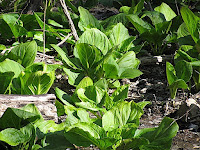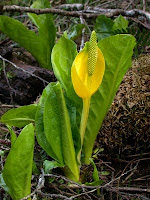Today has been a cold, early Spring day, with rain, some snow mixed in, falling occasionally throughout the day. It looks like we'll be having a chilly Spring this year, but the plants, lakes, ponds, and waterfowl do need the rain, so it is welcome indeed. After finishing some daily tasks, I jotted down this verse.
Gray Day
Awakening to a cold, gray day,
a foggy, dreary one,
a foggy, dreary one,
I contemplate the daily tasks ahead.
Raindrops can't even decide if they want to
fall from the gray sky...or not.
The lakes, ponds, and streams
have thirsty banks,
and the Spring waterfowl
need a place to swim, nest, live.
So rain, come along now!
Cold and distant as you are,
Raindrops can't even decide if they want to
fall from the gray sky...or not.
The lakes, ponds, and streams
have thirsty banks,
and the Spring waterfowl
need a place to swim, nest, live.
So rain, come along now!
Cold and distant as you are,
you are greatly needed,
and now, I welcome you.
and now, I welcome you.
I'll put on the tea kettle,
make a warm supper,
and when you're finished,
I'll take photos of the well-filled lake
with the sun reflecting its lovely glow
upon the deep waters.
© Jeanne I. Lakatos
To hear me recite this verse, please click HERE.






